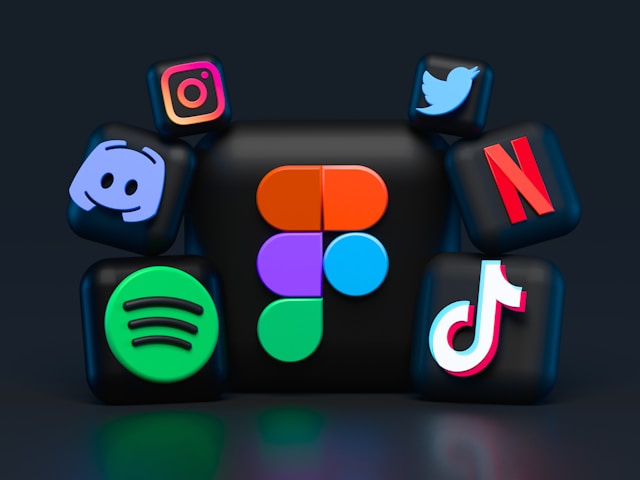
Generative AI is a type of artificial intelligence that can create new content, like text, images, and even product designs, based on the data it’s trained on. Think of it as a super-smart assistant that doesn’t just follow the rules but comes up with fresh ideas, tailored outputs, and valuable suggestions in real time.
In the fast-paced world of ecommerce, this technology is becoming a game-changer. From generating product descriptions and creating ad creatives to offering personalized shopping experiences, generative AI is helping businesses automate what used to be time-consuming and manual processes.
Find how generative AI will reshape ecommerce in 2025. Whether you’re a startup or an established store, there’s a lot to gain from adopting AI-generated content and automation.
What is Generative AI & How It Applies to Ecommerce
Generative AI refers to AI models that can produce new content based on prompts and patterns in data. Unlike traditional AI, which analyzes data to make predictions or classifications, generative AI creates, think text, visuals, audio, and more.
The core technologies behind generative AI include:
- Large Language Models (LLMs) like GPT and Claude can write content and interact conversationally.
- Diffusion models create realistic images and graphics.
- Generative design, where AI produces optimized versions of product layouts, UI designs, or packaging.
In ecommerce, this means brands can:
- Generate thousands of SEO-optimized product descriptions.
- Personalize user experiences at scale.
- Automatically create visuals, ads, and marketing messages.
>> Related Post: Top 5 AI Trends to Watch in 2026
Use Cases of Generative AI in Ecommerce
a. AI-Generated Product Descriptions
Writing compelling, keyword-rich product descriptions for hundreds of SKUs can be daunting. Generative AI tools can instantly write product descriptions tailored for SEO and different buyer personas.
Example: Amazon sellers use generative AI tools like Jasper or Copy.ai to auto-generate optimized descriptions for search and conversion without hiring large content teams.
b. AI-Powered Product Recommendations
Generative AI enhances recommendation systems by analyzing shopper behavior in real-time and generating innovative, personalized suggestions that adapt instantly.
Example: Shopify stores use AI to show customers the right products at the right time, boosting average order value and engagement.
c. Visual Content Generation
Creating professional product images, banners, or social posts requires a design team. Now, AI tools can auto-generate high-quality visuals from text prompts or product data.
Example: DTC (direct-to-consumer) brands use tools like Canva AI or Midjourney to create ad creatives for Instagram and Facebook, drastically reducing creative production costs.
d. Conversational Commerce & AI Chatbots
Generative AI powers next-gen chatbots beyond scripted replies to deliver helpful, human-like shopping advice.
Example: WhatsApp or website chatbots using generative AI help answer product questions, suggest items, and even complete orders—turning browsers into buyers around the clock.
e. Email Marketing & Ad Copy
Marketers can use generative AI to draft engaging subject lines, generate campaign ideas, and create multiple versions of ad copy for testing faster than ever.
Example: Ecommerce brands on Klaviyo use AI to create seasonal campaigns and test messaging variations, increasing open and click-through rates with minimal effort.
Real-World Examples of Generative AI in Ecommerce
Generative AI is already delivering real results for ecommerce brands. Let’s take a look at a few companies using it successfully in 2025:
1. Sephora
Sephora leverages generative AI to power personalized product recommendations and beauty tutorials. By using AI-generated content based on customer data, they’ve seen a notable increase in customer engagement and satisfaction. Their AI chatbot also assists shoppers in choosing the right skincare products, boosting conversions by 15%.
2. ASOS
ASOS uses generative AI to create dynamic, on-brand product descriptions and social media captions. This automation helped them cut content production time in half while improving SEO performance—resulting in higher organic traffic and reduced cost per acquisition (CAC).
3. Nike
In just three weeks, Nike developed a generative AI-powered shopping assistant that engages users in conversation, adapts recommendations to their preferences, shopping history, and profile in real-time, and improves with use.
>> Related Post: 5 Types of AI Every Small Business Should Know in 2025
Benefits of Generative AI for Ecommerce Businesses in 2025
Embracing generative AI has multiple advantages that can help ecommerce businesses grow smarter and faster.
– Cost Savings & Content Scalability
AI tools drastically reduce the need for large content or creative teams. One AI model can write thousands of product descriptions or generate ad variations in seconds, freeing time and budget.
– Better User Experience Through Personalization
From personalized emails to real-time product suggestions, generative AI allows brands to tailor shopping experiences at scale, leading to higher engagement and customer satisfaction.
– Faster Time-to-Market
Launching a new product? AI can instantly generate listings, landing pages, and promotional content—helping you go live in hours, not days.
– Competitive Edge
In a crowded market, speed and personalization are key. Brands using generative AI offer unique experiences and agile operations, especially against competitors who are still relying on manual workflows.
>> Related Post: AI in HR: Use Cases, Examples & Pros/Cons [2025]
AI and ML Services Offered by DataDoers
At DataDoers, we specialize in delivering innovative AI solutions:
- AI Chatbot Development Services/AI Assistant
- Computer Vision Development & Consulting Services
- Agentic AI Consulting Services
>> Related Post: Generative AI in Retail: Use Cases, Examples & Benefits [2025]
Conclusion
Generative AI is no longer futuristic; it’s transforming ecommerce in 2025. From AI-written product pages to automated marketing campaigns and conversational commerce, the use cases are clear, and the benefits are measurable.
Brands that embrace generative AI now will lead the market tomorrow. Whether you’re a small DTC brand or a growing marketplace, 2025 is the year to experiment, integrate, and scale.
FAQs
1. Can small ecommerce businesses afford generative AI?
Yes! Many generative AI tools offer affordable plans or even free tiers. Small teams can scale content and automation without heavy investment.
2. Is AI-generated content good for SEO?
When guided by the right prompts and SEO practices. AI can generate keyword-rich, readable content that ranks well and drives traffic.
3. What’s the ROI of using AI for ecommerce?
Faster content creation, reduced marketing costs, improved conversions, and better CX add significant ROI. Brands report up to 3x increase in productivity with the right tools.
4. Which ecommerce platforms work best with generative AI tools?
Platforms like Shopify, Magento, and WooCommerce offer the easiest AI integrations through plugins, APIs, and native tools.
Table of content
- a. AI-Generated Product Descriptions
- b. AI-Powered Product Recommendations
- c. Visual Content Generation
- d. Conversational Commerce & AI Chatbots
- e. Email Marketing & Ad Copy
- 1. Sephora
- 2. ASOS
- 3. Nike
- – Cost Savings & Content Scalability
- – Better User Experience Through Personalization
- – Faster Time-to-Market
- – Competitive Edge




